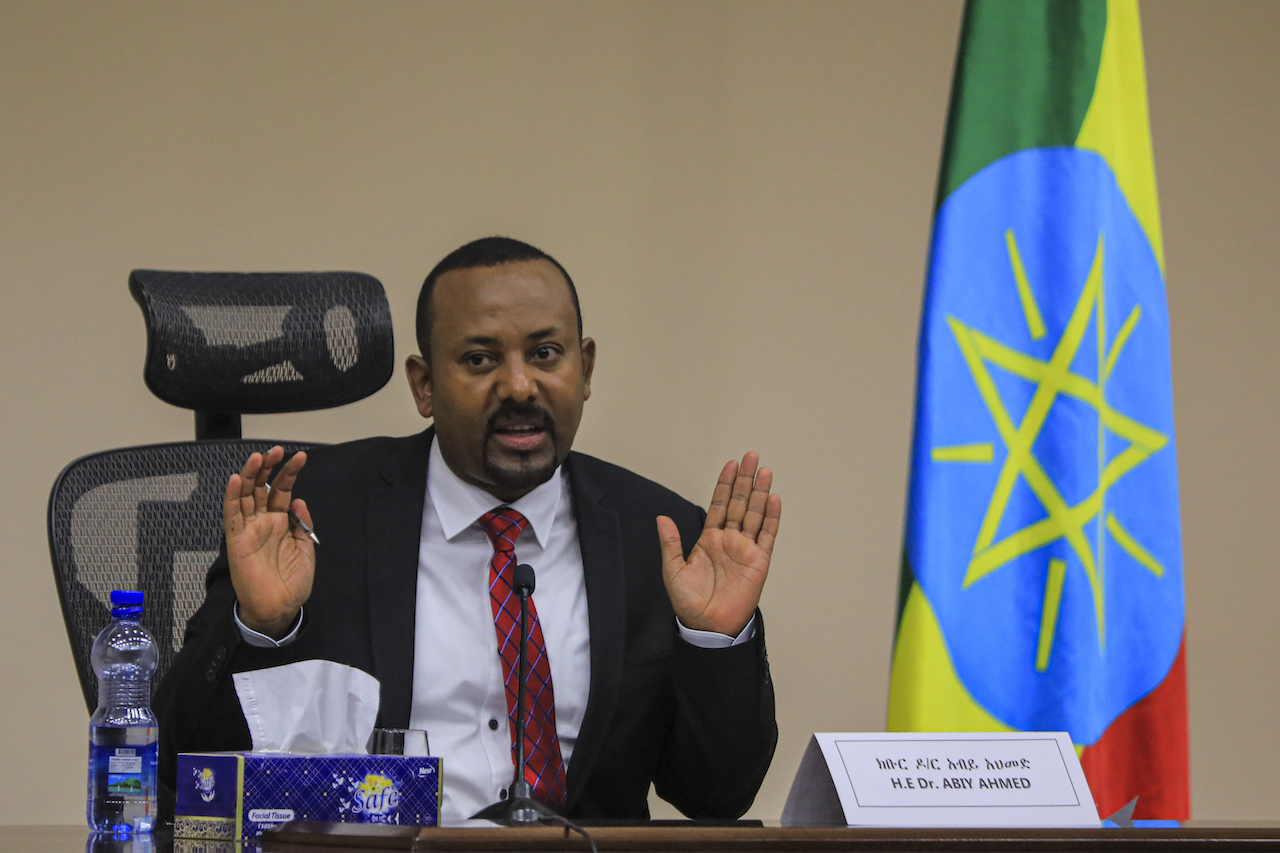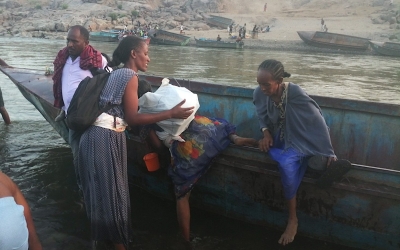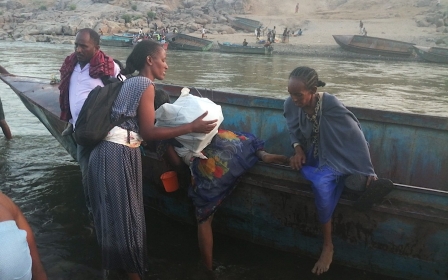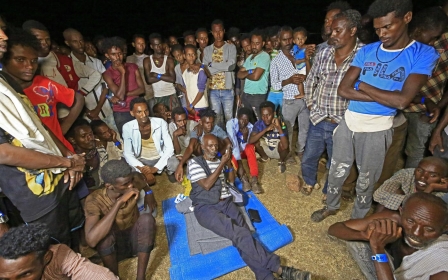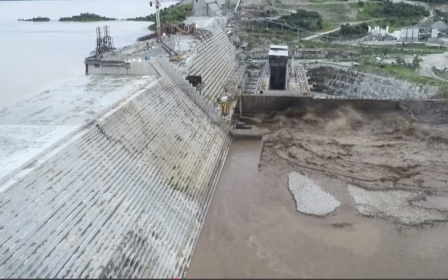As Ethiopian refugees flee to Sudan, advocates push for war crimes prosecution
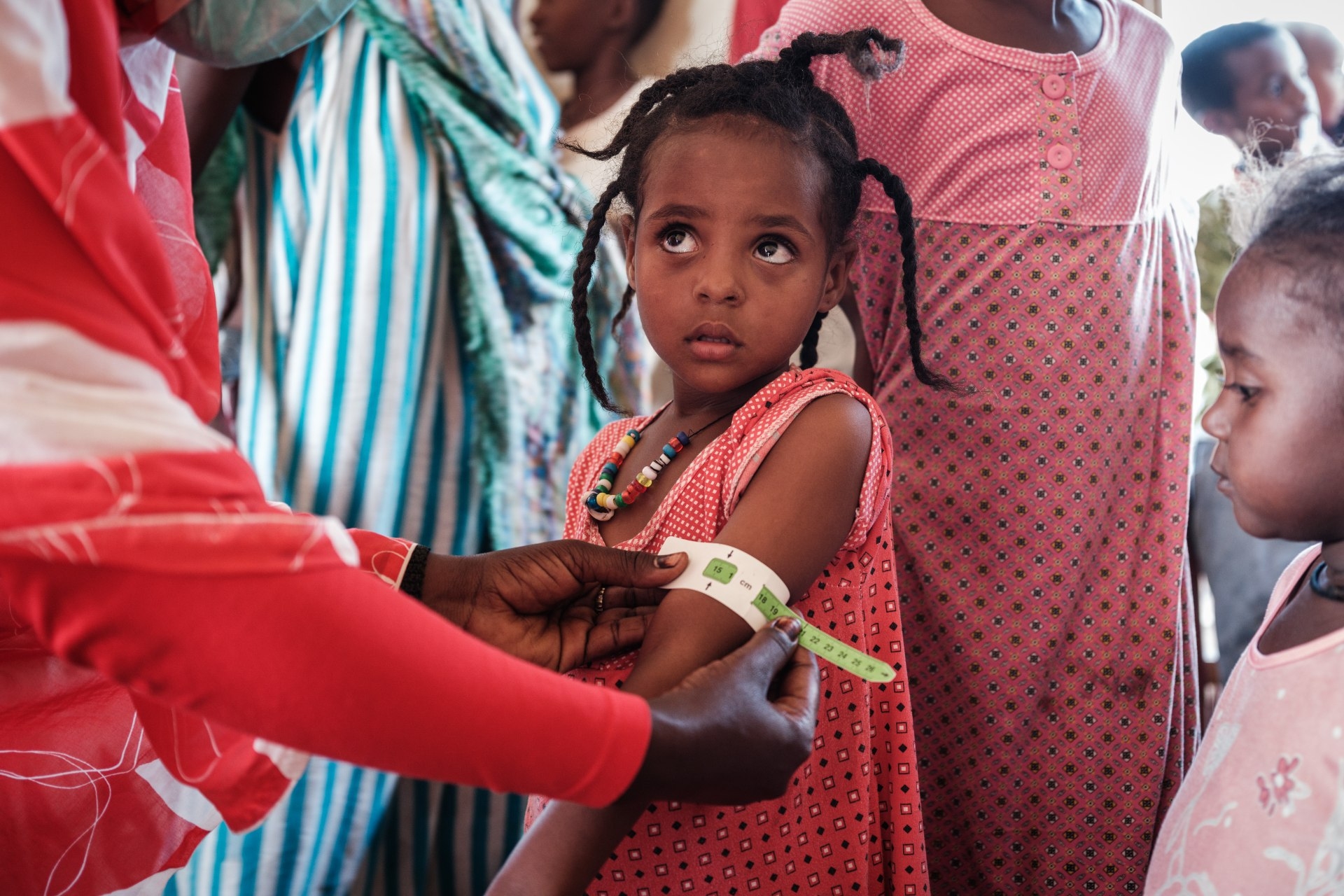
Human rights activists are increasingly calling into question the decision to award Ethiopian Prime Minister Abiy Ahmed the Nobel Peace Prize in 2019, as his military operation in the country's Tigray region continues to displace thousands into neighbouring Sudan.
A number of international human rights organisations have already begun investigations over allegations of abuses carried out by the Ethiopian National Defence Force (ENDF) in Tigray since fighting began on 4 November.
Some hope that testimonies from the more than 45,000 people who have fled Tigray for Sudan will help with an indictment similar to that levelled at former Sudanese president Omar al-Bashir in the International Criminal Court (ICC), on the basis of evidence gathered from the victims of the deposed ruler's conflict in Darfur and other regions.
Middle East Eye spoke to a number of refugees in Sudan who fled the border area with neighbouring Eritrea and Ethiopia to escape the fighting between the Tigray People’s Liberation Front (TPLF) - who control the Tigray region - and the ENDF, which has also sucked in the Eritrean army and a number of local militias.
'They killed in cold blood and without mercy and they ethnically targeted the Tigray'
- Sara Nega, refugee
Gabrew Gado, a 39 year-old from the village of Mai-Kadra now living in the Um-Rakoba refugee camp in Sudan, said that he was on his farm when ENDF-backed militias from the Amhara ethnic minority attacked.
New MEE newsletter: Jerusalem Dispatch
Sign up to get the latest insights and analysis on Israel-Palestine, alongside Turkey Unpacked and other MEE newsletters
“They attacked us in the early morning … and they continued killing everyone, including the children and elders, so we ran in every direction just to flee those abusive soldiers," he said. "I saw them slaughter my grandfather in front of my eyes, because he attempted to complain about them killing us in this brutal way.
“We ran for three to four days until we reached Sudanese borders under intensive bombing and ground attacks by the tanks and gunships of the three sides, the ENDF, the Eritrean army and the Amhara militia."
Another refugee, Sara Nega, 35, also said that she witnessed the killing and fled with her small family, but lost one of her children and her husband on the way.
“I’m traumatised with what I have seen there in my village Mai-Kadra - they killed in cold blood and without mercy and they ethnically targeted the Tigray,” she said, accusing Ethiopian army soldiers.
Militarisation of borders
The TPLF and ENDF have traded accusations of atrocities since the beginning of the conflict, which was sparked off by what the Ethiopian central government has claimed is the TPLF's illegitimate rule of the Tigray region.
Despite Abiy's claim at the weekend that his forces had "completed" their operations in the region, TPLF leader Debretsion Gebremichael has said his supporters will keep fighting "as long as these invaders are on our land", according to AFP.
Sudanese soldiers have classified those fleeing from Ethiopia into two groups, military and civilians, taking the military personnel - including both TPLF and ENDF - to military camps and civilians to refugee reception centres.
A Sudanese military source from the Gadaref region said that the entire border area between Sudan, Ethiopia and Eritrea had been militarised due to the wide scale of the war and the involvement of both Ethiopia and Eritrea, as well as the TPLF.
Speaking to MEE, under condition of anonymity because he is not authorised to talk to the media, the source said that Sudan had sent military reinforcements to the border to protect Sudanese territories and prevent any infiltration of soldiers from the warring sides.
“We are protecting our borders from any penetration of fleeing Ethiopian forces or TPLF soldiers as our commandership sent more forces to the region. Sudan already has security issues because of the recent tribal clashes in eastern Sudan, and we have no interest at all in being involved in Ethiopian issues,” he said.
'Horrific' atrocities
Human Rights Watch (HRW) Horn of Africa director Laetitia Bader told MEE that the rights group has little doubt a massacre had taken place in the Mai-Kadra area.
“Our own initial research, the findings of Amnesty International and the national governmental rights body in Ethiopia leave little doubt that scores of people, possibly hundreds, were brutally killed and many others wounded in horrific attacks and violence on 9 November in the town of Mai-Kadra," she said. "The incident was chilling."
Bader said HRW had already begun investigating the alleged abuses committed during the conflict, but said that the ongoing communications blackout in much of the region hampered investigations.
“Access and communications restraints make it difficult to corroborate reports and identify claims of who may be responsible for such abuses at this point," she said.
She added that it was important for an independent investigation to not only look into the Mai-Kadra incident, "but consider how it fits into broader abuses against civilians in the context of the fighting and the country more broadly".
Abiy has rejected allegations of abuses by the Ethiopian military, saying his army was professional and keen on protecting the lives of civilians in the Tigray region.
Conversely, the government-backed Ethiopian Human Rights Commission has accused the Tigray forces of committing the massacre in Mai-Kadra and killing hundreds of people.
Nizar Manek, an independent analyst on Ethiopia and the Horn of Africa, said the conflict could attract the attention of the ICC and other international investigators.
“It would come as little surprise if the situation has already interested the International Criminal Court," the analyst told MEE. "If Sudan’s poorly controlled eastern border remains porous as it did in the early stages of the war, evidence could mount, as with testimonies gathered against Bashir from refugees who fled Darfur for Chad."
He hypothesised that the Ethiopian prime minister was afraid of continuing uncertainties in his relations with Khartoum, a matter that has led his army to choke off a flow of witnesses across the border, and rejected the premier's claims that the conflict was over.
“It is astonishing that Abiy’s diplomats can pretend that the significant and sudden drop in civilians reaching Sudan is a result of the situation having returned to ‘normal’, even as Abiy himself sees fit to continue muzzling Tigray with a communications blockade," Manek added.
Middle East Eye delivers independent and unrivalled coverage and analysis of the Middle East, North Africa and beyond. To learn more about republishing this content and the associated fees, please fill out this form. More about MEE can be found here.


